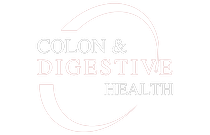Peptic Ulcer Disease: Symptoms, Causes & Treatment
Peptic ulcers are open sores that form on the inner lining of the stomach or the upper part of the small intestine (duodenum). They occur when stomach acid damages the protective lining, often leading to symptoms such as burning stomach pain, bloating, nausea, and indigestion. Left untreated, peptic ulcers can result in serious complications, including internal bleeding or perforation of the stomach wall. At Colon & Digestive Health Specialists in Conyers, GA, Dr. Karim Shakoor provides expert, compassionate care to diagnose and treat peptic ulcer disease, helping you return to a pain-free life.
What is Peptic Ulcers
A sore or lesion that develops in the lining of your stomach, small intestine, or esophagus as a result of the protective mucosal layer breaking down is called a peptic ulcer. This makes it possible for stomach acid to harm the lining, resulting in discomfort and inflammation.
There are two main types:
Gastric ulcers – form in the stomach
Duodenal ulcers – develop in the upper part of the small intestine
Common Signs & Symptoms of a Peptic Ulcer
Serious complications can be avoided by early detection of peptic ulcer symptoms. Typical signs of peptic ulcer disease include:
stomach pain that burns or gnaws, especially at night or in between meals
Feeling full or bloated quickly
Acid reflux or heartburn
Vomiting or feeling queasy
Tarry, dark stools—a symptom of bleeding
Unaccounted-for weight loss
Changes in appetite
Seek medical attention right away if you have black stools, blood in your vomit, or severe abdominal pain.
What Causes Peptic Ulcers?
The causes of peptic ulcers can be attributed to various factors. These consist of:
Bacterial infection with H. pylori: the most frequent cause
Long-term use of NSAIDs (such as aspirin or ibuprofen)
Smoking or drinking too much alcohol
Poor diet and stress are frequently aggravators rather than direct causes.
Other illnesses such as Zollinger-Ellison syndrome
How We Diagnose Peptic Ulcer Disease
Upper endoscopy – a thin tube with a camera to visualize the stomach lining
Urea breath test – detects H. pylori infection
Stool antigen test – checks for H. pylori
Blood tests – rule out infections or complications
Treatment Options for Peptic Ulcers
The treatment approach depends on the cause and severity of the ulcer:
Medication Therapy:
- To eradicate H. pylori, use antibiotics
- PPIs, or proton pump inhibitors, lower stomach acid
- H2 blockers and antacids to relieve symptoms
- Cytoprotective substances to shield the stomach lining
Modifications to Diet and Lifestyle:
- Steer clear of alcohol, tobacco, and NSAIDs.
- Consume meals more frequently and in smaller portions.
- Steer clear of acidic, fatty, or spicy foods.
Medical Procedures :
Endoscopic Treatment for Bleeding Ulcers
If your ulcer is bleeding, our provider can typically treat it immediately during an upper endoscopy. Treatment methods may include:
- Cauterization (sealing the blood vessel using heat)
- Injection therapy (injecting medication directly into the ulcer to stop the bleeding)
- Hemostatic clips to close the wound
Relieving Gastric Obstruction :
If your ulcer leads to gastric outlet obstruction—commonly affecting the duodenum or the pyloric channel (the stomach’s exit point)—it may block the normal passage of food. To treat this, we may:
Use gastric decompression, which involves gentle suctioning to relieve pressure and fluid buildup
Recommend endoscopic dilation to widen the narrowed passage
Peptic Ulcer Complications (When Left Untreated)
Untreated peptic ulcers can lead to serious health issues, including:
- Internal bleeding
- Perforation (a hole in the stomach wall)
- Gastric obstruction
- Stomach cancer (in rare cases with chronic H. pylori infection)
Don’t ignore persistent stomach pain. Early intervention can prevent long-term damage.
Care at Colon & Digestive Health Specialists
At Colon & Digestive Health Specialists, we are committed to delivering expert, compassionate care for individuals dealing with peptic ulcer disease and other digestive disorders. Our team, led by experienced gastroenterologist Dr. Karim Shakoor, uses state-of-the-art diagnostics and evidence-based treatments to accurately identify the signs of peptic ulcers, uncover the root causes, and help patients achieve lasting relief.
Schedule an appointment today to get the answers and relief you deserve.
FAQs
Medications such as PPIs and antibiotics (for H. pylori) provide the quickest healing. Lifestyle and dietary changes also speed recovery.
Stress doesn’t directly cause ulcers but can worsen symptoms and slow healing. Stress management is part of a comprehensive treatment plan.
With proper treatment, most peptic ulcers heal within 4–8 weeks. However, follow-up care is crucial to ensure complete recovery.
If you have a peptic ulcer, avoid spicy foods, alcohol, caffeine, acidic foods (like citrus or tomatoes), and high-fat meals. These can irritate the stomach lining and delay healing. A bland, balanced diet with lean proteins, vegetables, and non-acidic fruits is ideal.
Find Relief from Peptic Ulcers
If you’re experiencing symptoms of peptic ulcers, prompt treatment is crucial to prevent complications and improve your quality of life. Contact CDH today to schedule a consultation with Karim Shakoor, M.D. Our dedicated team is here to provide the effective care and support you need to heal and prevent peptic ulcers.
At CDH, we’re committed to your well-being. Let us help you manage peptic ulcers with comprehensive care and expert guidance.
Our location
Colon & Digestive
Health
Specialists
1805 Honey Creek
Commons,
Ste B, Conyers GA
30013
© 2026 All Rights reserved by Colon & Digestive Health Specialists

